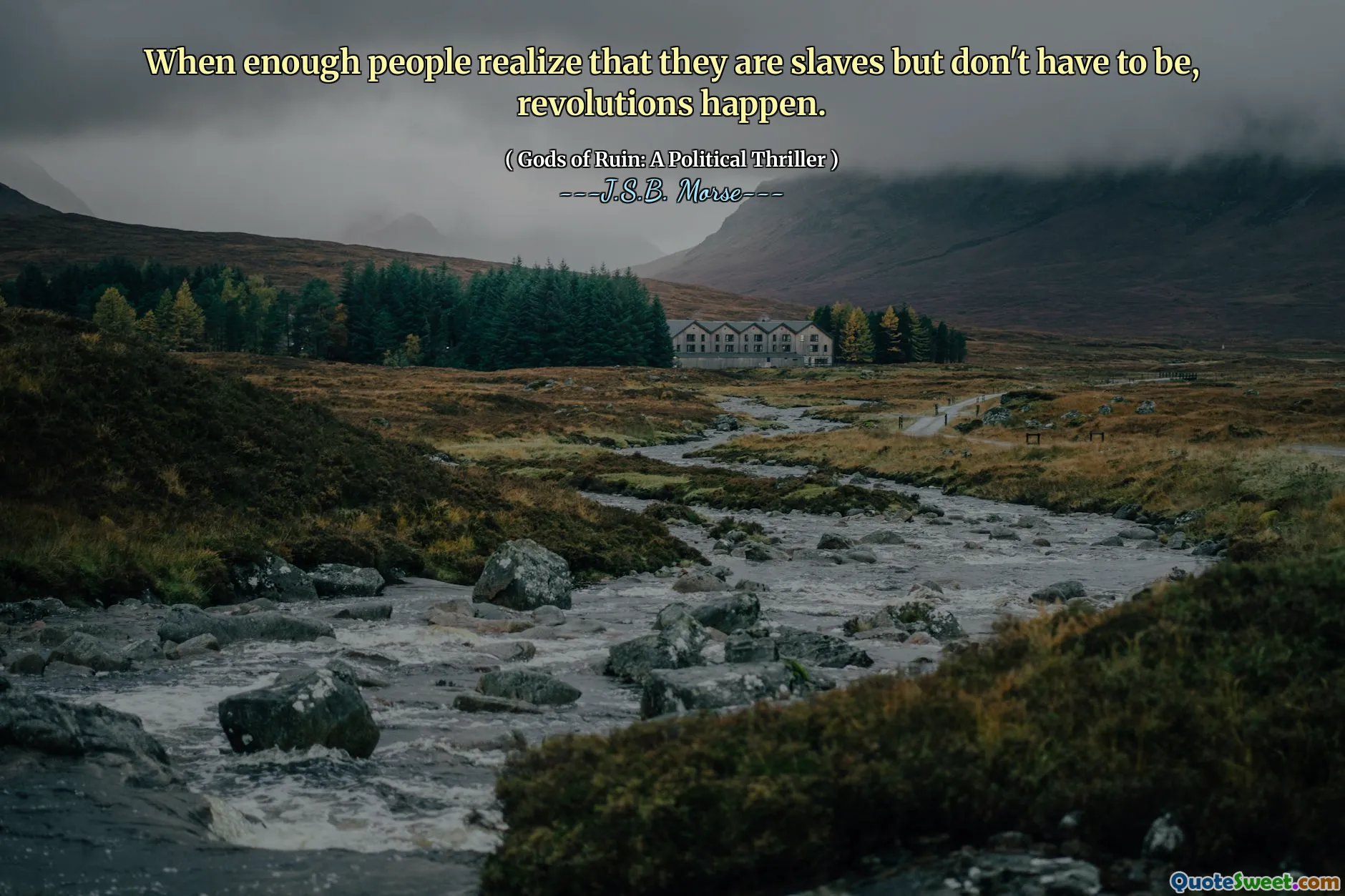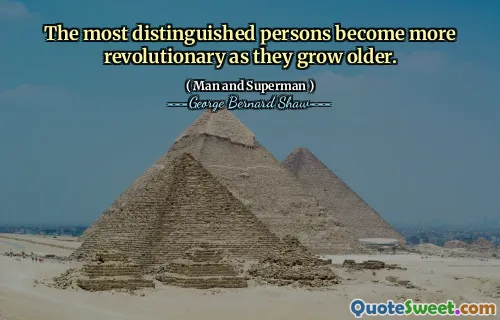
When enough people realize that they are slaves but don't have to be, revolutions happen.
This quote from 'Gods of Ruin: A Political Thriller' by J.S.B. Morse starkly captures the essence of societal change and the powerful catalyst that self-awareness can provide. The metaphor of being a 'slave' is not necessarily literal; it speaks to various forms of oppression or constraints that individuals or groups may unknowingly endure or accept. Often, people are trapped in systems — be they political, social, or economic — that limit their freedom and potential. However, the turning point occurs when a critical mass reaches not just the recognition of their predicament but also the understanding that these constraints are not immutable. By realizing autonomy is possible, collective empowerment is unlocked, which can ignite transformative action. This insight into the psychology of revolution also underscores the importance of consciousness and knowledge as the roots of rebellion. It’s a poignant reminder that oppression does, to an extent, rely on ignorance or acceptance; once people become awake to the possibility of change, the established order threatens to unravel. The quote invites reflection on the dynamics of power, encouraging a hope that societal structures are malleable and can be challenged when enough individuals unite with awareness and courage. This is not only a commentary on political upheaval but also a broader metaphor about personal liberation from any limiting circumstance. It suggests a universal principle: transformation frequently begins when enough people challenge the perceived inevitability of their condition.

